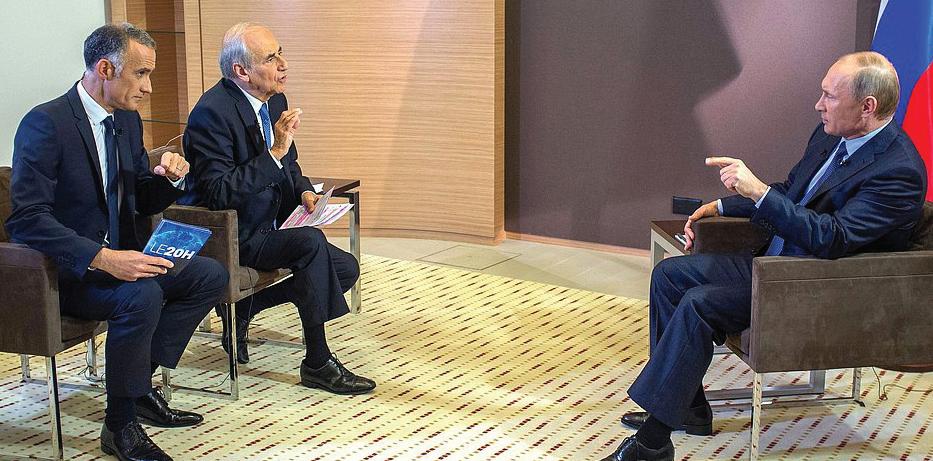
6 minute read
Growing Divisions
Strategic Vision vol. 6, no. 31 (February, 2017)
Long-term impact of Brexit vote threatens to undermine unity in the West
Advertisement
Huai-jen Wang

British protesters gather outside of the British Parliament in London during a pro-Brexit rally in November, 2016.
photo: Bulverton
On June 23, 2016, British citizens made history by casting their votes to leave the European Union (EU). In a surprising and monumental decision, the motion to leave the EU won by 52 percent to 48 percent. The referendum turnout was 71.8 percent, with more than 30 million people voting. Prime Minister David Cameron, who had supported Britain’s membership in the European Union, consequently resigned on July 13, after which Theresa May, leader of the Conservative Party, became prime minister. In order to leave the EU, the UK has to invoke an agreement called Article 50 of the Lisbon Treaty which grants both sides two years to agree on the terms of the split. May has said that she plans to trigger Article 50 to start the two-year process of Brexit talks by March 2017, and after a phased process of implementation, the UK will fully exit the EU by March 2019. However, no one really knows how the Brexit process will work, because Article 50 was only created in late 2009, and has never been used.
Prime Minister May has stated, “we will seek a new and equal partnership between an independent, self governing Global Britain and our friends and allies in the EU.” The impact of Brexit will not only affect the European balance of power, but also the global financial and strategic arrangement. Despite these assurances, the transition is likely to cause a great deal of upheaval in the Western order.

Norwegian forces near the Arctic Circle during the military exercise Cold Response 2009.
photo: Soldatnytt
From the European perspective, uncertainty over Brexit may well persuade some companies to refrain from investing in Britain for the benefit of the remaining European Union countries. Amsterdam could be one of the immediate beneficiaries due to the transfer in bank assurance. If new customs duties are imposed on “made in UK” products, British industry would be penalized, which could spur some British companies to relocate some of their production to the continent.
The banking sector is one of the areas expected to be most affected by Brexit, due to the role played by the United Kingdom—and especially London—in world finance. The HSBC Bank, which fears the abolition of the “financial passport” of English Banks to operate in Europe, is considering transferring its headquarters from London to Paris. Other institutions, if deprived of convenient access to the EU market, could also leave London to settle on the continent.
The devaluation of the British currency may appear as a means of salvation for the British economy. A 20-percent drop in the Pound Sterling would immediately restore competitiveness to British exports, to the detriment of businesses in the EU. The battle for export markets will therefore be tougher for European companies. However, a devaluation of British currently would cause inflation in England, which the government does not want. For Europe, if British growth slows down, it will also harm an important export market for European products. This can only weaken the growth of the Eurozone.
The real risk is the threat of tax dumping. If the UK becomes a tax haven with a 10-percent corporate tax rate, then many European companies could relocate their headquarters out of the EU. Such dumping could happen if Brussels removes the financial passport from British banks. It will all depend on the upcoming negotiations. The coming period will create uncertainty and companies will hesitate to invest because they need visibility.
In economic affairs, French influence and position may be compromised as a result of Brexit. With the absence of Britain, Germany’s economic clout will only increase. Without Britain’s presence as a balancing factor, France may have a more difficult time wielding influence in the face of a more dominant Germany.
Brexit will inevitably be used and manipulated by populist parties in Europe who are also dissatisfied with the structure and regulations of the EU. The example of Brexit will embolden their efforts, and increase their strength. Those who support the solidarity of the EU will be at a much greater disadvantage as a result of Brexit.
London’s decreased influence in financial markets as a result of Brexit may also produce a scramble and increased competition between European financial centers to take advantage of the loss of Britain. If this is not handled well, it could add to the sense of division and frustration which currently exists in the EU.
Brexit will also produce mixed results for the relationship between the United States and Britain. The United States and Britain may see strengthened relations as a result of decreased British interaction with the continent, but the United States will lose a great deal of ability to influence the EU via Britain. This could weaken US goals in Europe, particularly in regards to the pursuit of a free trade agreement with the EU.
Diminished power
The impact of Brexit will immediately diminish the power of the EU in the United Nations Security Council. With the loss of Britain, France will be the only permanent European member of the UN Security Council. Europe’s ability to influence security-related decisions will be marginalized in the future. Moreover, France will also be the lone nuclear power in Europe.

British troops participate in NATO exercise Swift Response in the summer of 2015. Swift Response was the largest airborne exercise since the Cold War.
photo: US DOD
Britain’s decision to leave the EU will also weaken the ability of the West to put pressure on a resurgent Russia. The Kremlin has long sought to undermine the EU and NATO in order to more easily achieve its goal of expanding its sphere of influence in places like the Crimean region of Ukraine, and increase its influence in the region in general. Brexit removes Britain as an influential voice in European efforts to isolate and punish Russia for its military operations in Crimea, and its role in destabilizing the Ukraine. It also empowers the Kremlin by enabling it to deal with strong countries individually, rather than as blocs. It can also be exploited by Russian nationalists as an example of how a lack of unity can lead to weakness.

Russian President Vladimir Putin, seen here during an interview with French journalists, may stand to benefit from division in the West.
photo: Kremlin.ru
Post-Brexit developments may also lead to new relationships between the United States and continental Europe. While the United States will be keen to maintain strong ties with the United Kingdom, it may also need to strengthen relations with other members of the European Union. Over time, a second special relationship could develop if the United States relies more heavily on France and Germany to manage diplomatic and military affairs with the EU. Germany has already begun to assume the leading role in the transatlantic economic and trade relationship; a natural position given its status as the dominant economic power and decisionmaker in the EU. Similarly, a Franco-American rapprochement has taken place since France rejoined NATO in 2009. More recently, France has become a privileged ally of the United States in the field of military cooperation, which will be crucial for the future of transatlantic relations in security and defense.
In the long-term, Brexit may weaken Western cooperation, and benefit Russia in its dealings with the West. The United States may decide to re-evaluate its relationship with Britain, and seek to cultivate closer relations with major EU powers such as Germany and France. If this were to occur, it would usher in a transition phase where the US and major EU powers adjust to new roles, and new relations. If this transition phase is not managed well—a likely possibility given European distrust towards the current US administration—it could provide Russia with an opportunity to deepen its influence in Europe. Moreover, a fractured Western order may produce a greater sense of vulnerability in Europe to Russian intimidation tactics. This would provide Russia with an additional weapon in its foreign-policy arsenal.
Huai-jen Wang is a commander in the ROC Navy and a PhD student at the ROC National Defense University in Taipei. He can be reached for comment at wanghuaijen@gmail.com





